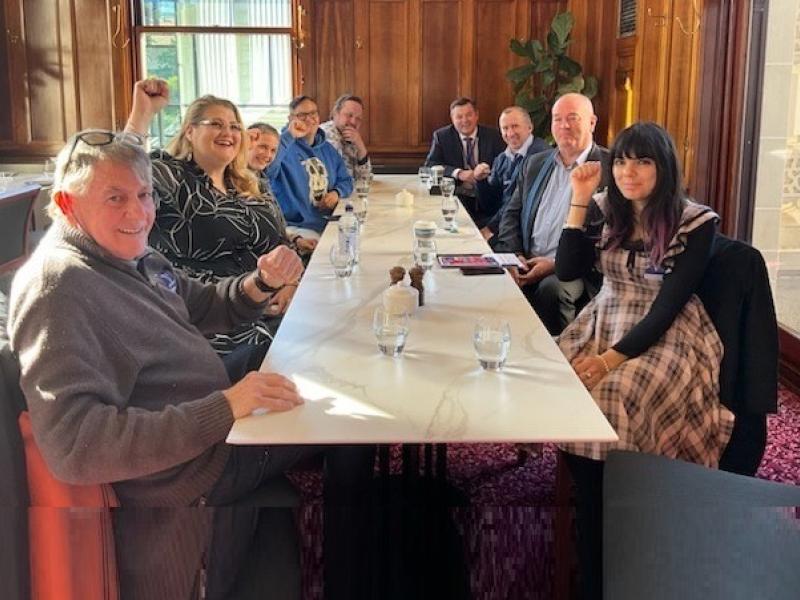Mind Australia Peer Worker Michael Boyd says increasing investment in the lived and living experience workforce is needed to improve Victoria’s mental health system.
Michael and other Health and Community Services Union (HACSU) representatives presented to Victorian Parliament this month on behalf of the lived and living experience workforce, advocating for change to provide the support and longevity the lived experience workforce needs.
Michael, who has a lived experience of mental health challenges, says the presentation was an opportunity to increase awareness of the lived and living experience mental health workforce, the important work that they do and the positive outcomes they provide for people experiencing mental health challenges.
“The value of lived experience support is through good communication and connection – you tend to find mutual experiences that help you develop a meaningful relationship with someone accessing support,” he said.
“It’s also easier to generate trust with someone as a lived experience worker because they don’t see you as part of the service or the mental health system that has failed them in the past.”
The group of lived and living experience workers discussed with the 28 attending Members of Parliament the challenges faced by the workforce in the mental health sector. These include low wages, limited growth and career prospects, and lack of learning and development opportunities.
Michael demonstrated the value of peer support from his personal experience working in Mind’s Early Intervention Psychosocial Support Response (EIPSR) program in Albury-Wodonga.
